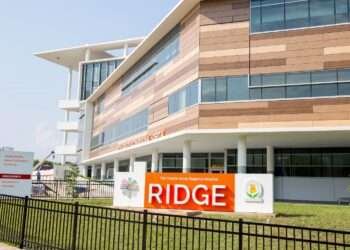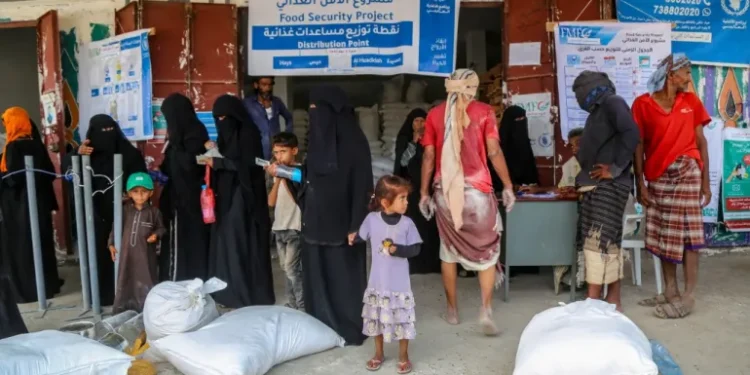The Director of the Electoral Commission (EC) office Dr. Serebour Quaicoe, has addressed critical issues surrounding the voter exhibition exercise, voter turnout, and the importance of verifying voter information.
Dr. Serebour emphasized the need for the public to take advantage of the exhibition period to ensure their information is accurate ahead of the upcoming elections. His observations also shed light on the challenges the EC faces in ensuring a clean and credible voter register.
One of the key points Dr. Serebour raised was the historically low turnout during voter exhibitions. He recalled that the voter turnout was only 12% in the previous exhibition exercise. He emphasized that this low turnout reflects a lack of public appreciation for the importance of the exercise.
“The last time we hired, it was 12% voter turnout. [In this effect, we] appreciate the essence of the exhibition.”
Dr. Serebour Quaicoe The Director of the Electoral Commission (EC)
This is indicative of a broader challenge of public awareness and participation in pre-election processes, which are critical to the success of the actual voting exercise.
Dr. Serebour stressed the significance of the voter exhibition process in ensuring that individuals verify their information at the centers where they will eventually cast their votes. He explained that failing to do so could lead to confusion and misplacement of voters on election day.
“You need to go and check your name, because where you check your name is where you will vote.”
Dr. Serebour Quaicoe The Director of the Electoral Commission (EC)
Dr. Serebour elaborated that many voters tend to move from one center to another on election day, which often results from not having confirmed their voter registration details during the exhibition period.
A unique challenge this time around, according to Dr. Serebour, stems from the limited voter registration exercise conducted at district offices.
Verification of Voters Names in the Register
Dr. Serebour explained that while voters might have registered at a particular district office, their names might be displayed at a different location due to administrative processes. He used an analogy to drive home this point:
“You might have mentioned that you wanted to be at Joy News. But maybe the people who had [ registered] had Joy FM. So, if you don’t go and check, on the day of voting, you will go to Joy News, but your name will go on Joy FM.”
Dr. Serebour Quaicoe The Director of the Electoral Commission (EC)
This analogy underscored the necessity of verifying voter details during the exhibition period.
Another issue Dr. Serebour highlighted was the presence of ghost names on the voter register, which has historically been a significant problem.
Dr. Serebour urged the public to inform the EC about any deceased relatives to prevent their names from remaining on the register.
“The register is for the living, not for the dead. So, if you have any relation or you know somebody who has passed on, it is on you to inform the electoral commission.”
Dr. Serebour Quaicoe The Director of the Electoral Commission (EC)
This initiative is crucial to reducing the number of ghost names and ensuring a more accurate voter turnout percentage.
When discussing the general attitude of voters towards the exhibition exercise, Dr. Serebour noted that some people believe that as long as their names are on the register, they will be allowed to vote, even if there are discrepancies in their details. He clarified that while these inconsistencies might not prevent them from voting, they could create challenges in other official processes where the voter ID card is required.
“Apart from voting, the card may be needed for other issues.”
Dr. Serebour Quaicoe The Director of the Electoral Commission (EC)
Dr. Serebour provided an example of an individual whose gender was incorrectly recorded on their voter ID card, illustrating how such errors could cause complications in non-voting situations.
The EC has taken steps to address these issues, with Dr. Serebour explaining that they are escalating their efforts to educate the public on the importance of the exhibition process.
Meanwhile, EC officers have been deployed to various locations, including churches, markets, and mosques, to raise awareness and encourage people to check their voter registration details.
Dr. Serebour stressed the importance of cleaning up the voter data for proper accountability and ensuring that only eligible voters are included in the register.
In response to a question about the EC’s concern regarding low voter turnout during the exhibition, Dr. Serebour acknowledged that it reflected the public’s attitude toward elections.
However, Dr. Serebour also pointed out that this trend is not new and has been observed in previous election cycles. “It has been the trend,” he remarked, suggesting that the challenge of low engagement during pre-election activities is a recurring issue that requires continuous attention and improvement.
Dr. Serebour’s commentary underscored the critical importance of the voter exhibition exercise in ensuring a credible and accurate voter register.
Dr. Serebour’s remarks highlighted the need for increased public participation, better communication from the EC, and proactive measures to address discrepancies in voter information. By engaging the public more effectively, the EC aims to build a cleaner, more reliable voter register that will contribute to the overall integrity of the electoral process.
READ ALSO: Yul Edochie Addresses Misconceptions Surrounding His Public Image























